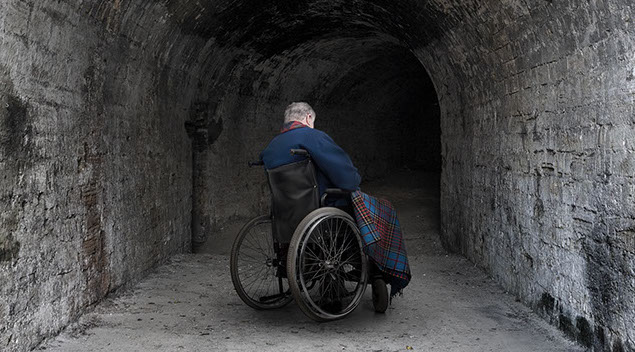Prelude To Dying
There are many, often poetic ways to describe death – shuffling off the mortal coil, venturing to the Yellow Springs, giving up the ghost, joining the invisible choir, to name a few. But a reluctance to talk more forthrightly about this inevitable journey, particularly in Chinese society, means people may die in a manner out of tune with their wishes. HKU scholars are trying to break down the barriers to reaching a peaceful end.
What is a good death? Minimal pain and suffering in the company of loved ones, to be sure, but maybe there is something more: a sense of control over how we spend our final days.
In a city where more than 90 per cent of people pass away in hospital, such an ending can be difficult to achieve. The system is such that those with terminal illnesses in particular can find themselves in an acute hospital ward subject to extraordinary measures to keep them alive, rather than a calmer palliative environment or even at home.
Researchers at HKU have been studying the problem from the perspective of everyone involved – patients, families, nursing homes and medical staff – to help people express their wishes, reconcile the profound emotions around caring for those who are dying, and understand that this, too, is a part of life.
“Dying is living and living is dying. We are on the road to death the minute we are born,” the Dean of Medicine, Professor Gabriel Leung, said. “The last days of a patient’s life are often like a musical cadenza. They’re the most brilliant part of their whole person journey – or they can be. Our job is to make sure that they are so, rather than a terminal decline and wait for the inevitable.”
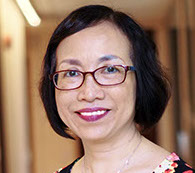
![]() If you ask people where they want to die, of course they say at home… [But] who is going to take care of them?
If you ask people where they want to die, of course they say at home… [But] who is going to take care of them? ![]()
Professor Cecilia Chan
Dissonance in end-of-life care
Achieving a brilliant end is a challenge in modern-day Hong Kong. The breakdown of the extended family and long workdays for the healthy mean that patients with chronic or terminal illnesses, such as dementia or cancer, need outside assistance.
“If you ask people where they want to die, of course they say at home,” said Professor Cecilia Chan, Si Yuan Professor in Health and Social Work, Head of the Department of Social Work and Social Administration, who has been studying end-of-life care and death in Hong Kong for two decades. “But when you have someone who has high dependency or terminal illness, who is going to take care of them? We are very lucky to have domestic helpers here, but fewer and fewer of them are willing to work with the elderly.”
Seven per cent of Hong Kong’s elderly live in nursing homes, one of the highest proportions in the world. Most of the staff are not trained properly in caring for terminally-ill patients and for even the most minor ailments, they want hospitals to handle it.
“If a terminally-ill resident has a fever, the first thing the nursing home will do is ship them off to hospital. This creates a lot of trauma and physical and psychological pain for the resident because they have to leave an environment they are familiar with for the cold and unfamiliar hospital environment,” said Dr Andy Ho, Honorary Lecturer of the Department of Social Work and Social Administration and Honorary Research Fellow at the Centre on Behavioural Health and Sau Po Centre on Ageing.
Dr Ho has conducted two pilot projects on end-of-life care involving clusters of nursing homes and their nearby hospitals. Nursing home staff received basic training on treating symptoms such as fever. If the patient did not improve and needed further care, they were sent to the hospital under an expedited pathway that bypassed the usual registration procedures and the acute ward to admit them directly to the palliative care unit.
Advance care planning was also arranged, so patients could let the nursing home and hospital know about their wishes and concerns in advance. This not only honoured the patient’s final wishes – something Dr Ho verified in interviews with the families of patients and staff in the nursing homes and hospitals – it also saved on hospital resources.
“Without an advance care directive in place, patients with terminal illness can end up in emergency wards where the medical staff will do whatever treatment they can to save lives,” Dr Ho said. These treatments can be invasive, unwanted – and expensive, something that has to be an important consideration given the ageing population and rising costs of healthcare.
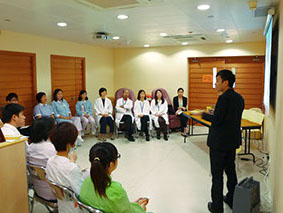
-re.jpg)
Dr Ho (right) holds life-and-death education workshops for medical staff in hospitals.
Dr Ho's team carries out a great variety of community life-and-death education programmes, including the palliative care programme in Noah Art.
Harmonising with patients’ wishes
Advance care planning allows individuals to indicate treatments they would and would not want in the event of loss of capacity, such as irreversible coma. In Hong Kong, the Law Reform Commission has produced a non-statutory form that patients may complete, but as yet a system to coordinate and communicate patients’ wishes among nursing homes, emergency services and hospitals has not been developed (Dr Ho’s projects were one-offs).
Marie Kobler, Research Officer in the Centre for Medical Ethics and Law, arrived at HKU two years ago from the United States where she worked as a healthcare attorney.
“For seriously-ill patients, the United States is moving towards an addition to advance directives called ‘POLST’, which are actual physician orders for life-sustaining treatment. While not for everyone, patients nearing the end of life can request specific orders – such as comfort care only or no artificial nutrition by tube – and these are kept on record to avoid any possibility of mistakes,” she said.
“There has been a lot of discussion in Hong Kong about whether people are ready to embrace the process of advance care planning, whether they are comfortable talking about death. Certainly a number of studies say Chinese people are perfectly willing to talk about death and want to plan for it.”
However, it is not a simple case of copying the experience of the West, said Dr Ho, who has been studying advance care planning.
“Advance care planning in the West is very individualistic – you talk with the patient about what they want and follow their wishes. But in the Chinese and Asian context, we cannot just focus specifically on the patients because no big decisions are made by the individual alone. It is always a family decision. In order for advance care planning to work, the care team has to work with the entire family to come up with a consensus about what the family wants and what the patient wants, and help them negotiate a decision that every party is satisfied with.”
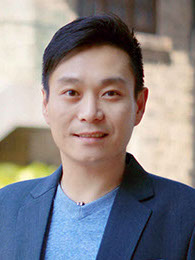
![]() Advance care planning in the West is very individualistic… But in the Chinese and Asian context, we cannot just focus specifically on the patients because no big decisions are made by the individual alone. It is always a family decision.
Advance care planning in the West is very individualistic… But in the Chinese and Asian context, we cannot just focus specifically on the patients because no big decisions are made by the individual alone. It is always a family decision. ![]()
Dr Andy Ho
Off-key findings
There is also a caveat about advance care planning: it may not always achieve the desired outcome for patients. Dr Ho has also been studying data on health and retirement collected from 3,700 subjects in the United States over the past 10 years, including psychosocial well-being in the final days of life. “Surprisingly and disconcertingly” people suffering from lung and heart disease, stroke or memory problems who had advance directives experienced greater depression, pain and social agitation than those who did not have directives, he said.
“There are two possible explanations for this. People with advance directives are more educated and probably know specifically what they want, so perhaps their demands and expectations of care are higher.
“The second possibility, more importantly, is that people who execute advance directives may be much more focussed on getting the documents signed than treating this as part of a process. They want people to sign off their lives and once they sign the document, that’s the end of it.
“Advance directives should be the beginning of an important dialogue to help the physician and his interdisciplinary care team understand what the patient wants. The final goal should not be signing the document, but providing continuous dialogue and support, and re-visiting these goals to see if they have been taken care of.”
That requires a shift not only in how the dying are cared for, but how their caregivers are prepared.
Attuned to the dying
The professionals who care for the dying can experience death anxiety, negative attitudes to death and emotional burnout. “A lot of people working in end-of-life and palliative care may have the clinical skills to treat dying patients, but emotionally and psychologically, they are not prepared to provide support in relieving their existential suffering,” Dr Ho said.
He has developed art therapy and mindfulness programmes to help frontline social workers, nurses and doctors in Hong Kong and Singapore express their feelings about death and cope with the pressures.

The mindfulness workshop is part of the Medical Humanities curriculum for doctors-in-training.
HKU’s Li Ka Shing Faculty of Medicine has also made reflections on death, dying and bereavement part of its new Medical Humanities curriculum, which was launched in 2012. Recognising that this can be an uncomfortable and emotional topic for young doctors-in-training, many of them still teenagers, the curriculum eases them in with reflections on death in art, film and literature, an introduction to cross-cultural customs and rituals, a visit to the mortuary and, in their fourth year, an opportunity to shadow a health-care professional and observe discussions relating to end-of-life care.
Professor Leung explained their humbling goals: “It is only through living with those experiences and really having the opportunity and privilege of sharing the last days of a patient’s journey, that can one even begin to appreciate how inadequate we are as healthcare providers. All we can possibly hope to do as teachers is to inculcate in students that sense of awakening, that they need to learn more, think more and always be sensitive to these emotions if they wish to become better practitioners.”
The secret is to hold on to the objective, professional values of their medical training, but with heart. “Above all, it’s about helping people to live better even as they die. It’s easier than it sounds. It requires doctors to be human,” he said.
Such awareness, among doctors as well as other caregivers, could inspire improvements in how Hong Kong cares for the dying. “There is no government-led initiative on end-of-life care in Hong Kong, so it is all down to the leaders of hospitals and nursing homes,” Dr Ho said. “They will eventually face the end of life, too. When they do, what service do they want to see? Having passion and compassion can help to drive and accelerate the process to change.”
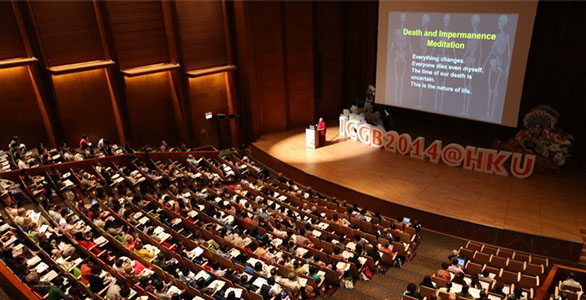
The International Conference on Grief and Bereavement in Contemporary Society (ICGB), the renowned tri-annual international event that was held in Asia for the first time, brought together over 1,000 local and overseas scholars.
Death dialogues in the community
Scholars in HKU’s Faculty of Social Sciences have initiated several community programmes over the past decade to reduce the stigma attached to death.
From 2006 to 2010, the Centre on Behavioural Health (CBH) coordinated Project ENABLE (Empowerment Network for Adjustment to Bereavement and Loss in End-of-life), which received HK$20 million in funding from the Hong Kong Jockey Club to raise awareness and conduct training and research to improve attitudes towards death, dying and bereavement.
In 2011 the Centre developed the Hospice Home website (www.hospicehome.hk) with the Li Ka Shing Foundation and the Hospital Authority. It provides information on caring for the terminally-ill and honouring their memory, for patients, their families, medical staff and volunteers.
Last year the Faculty organised the 10th International Conference on Grief and Bereavement in Contemporary Society, which was attended by about 1,000 people from around the world. Public education events were also organised, such as a ‘Death Café’ to talk about death.
The Faculty also provides death education training for service professionals and periodically conducts public surveys on death attitudes, which have generally become more positive over the past few years, although a significant minority still think recently-bereaved families should stay to themselves because of the ’bad luck’ attached to them.
Professor Cecilia Chan, who founded the CBH, was a central organiser in all of these events and believes their work is far from done. “We must do much more to encourage community acceptance of death. We want there to be fewer regrets for family members and less unfinished business for people who pass away,” she said.
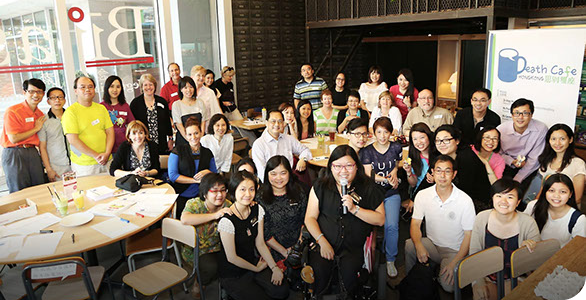
Conference participants from around the world joined the Death Café sharing.
Next


